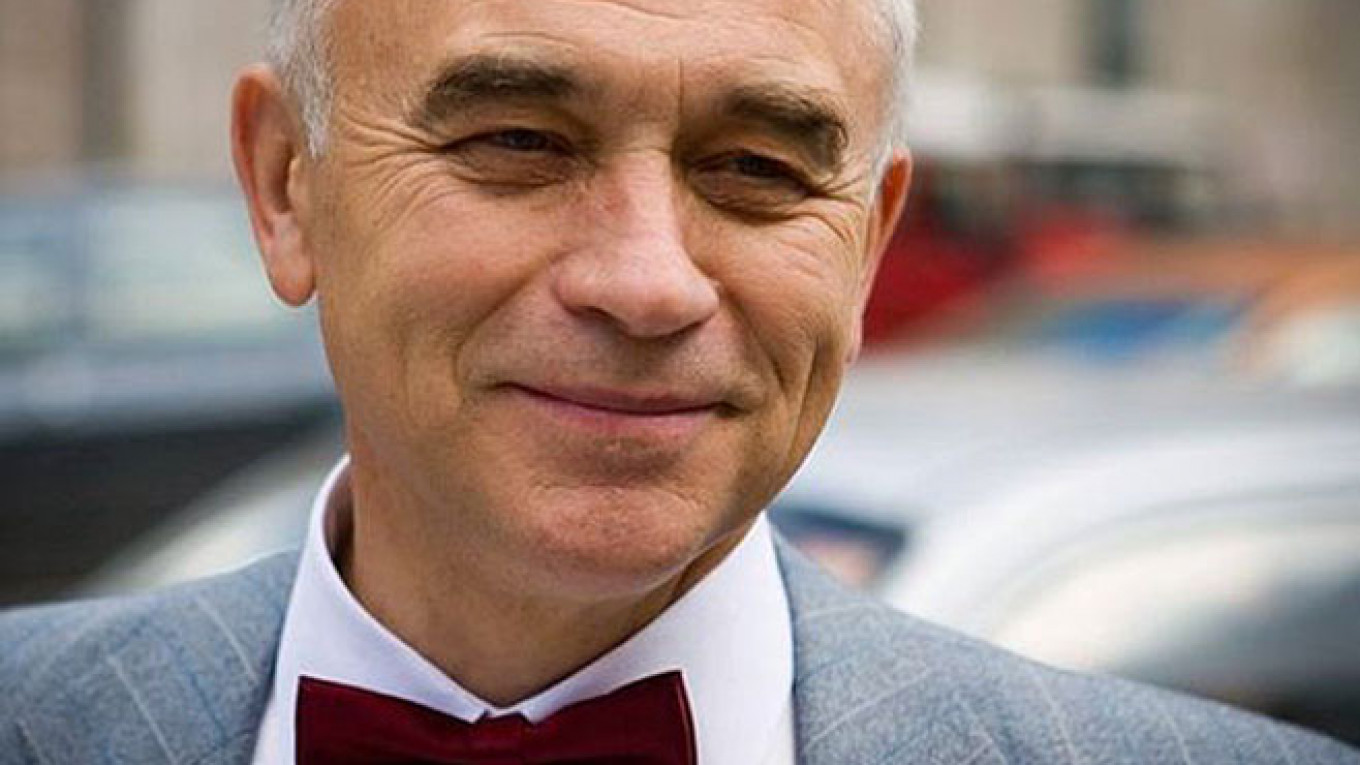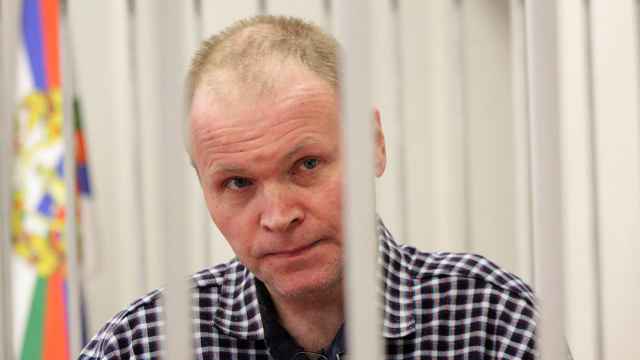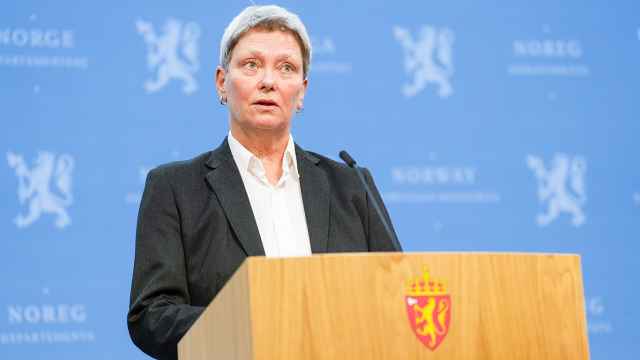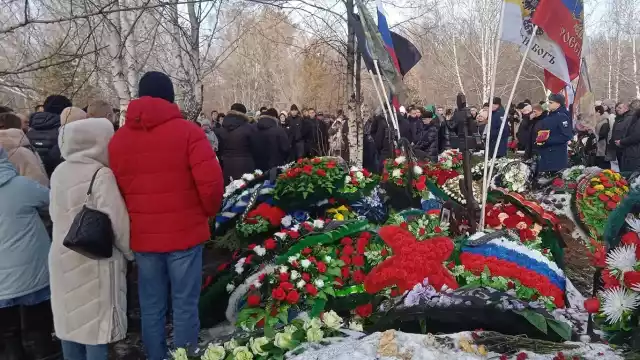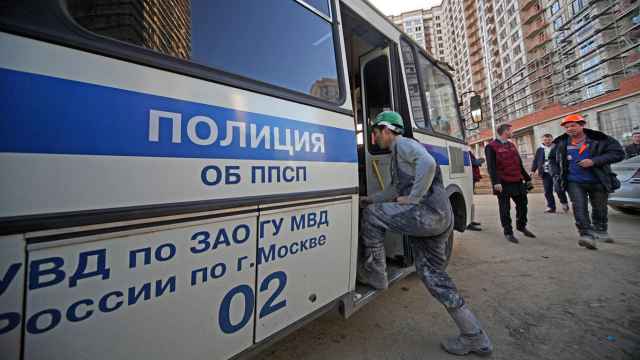Rear Admiral Vyacheslav Apanasenko, the 66-year-old former head of the rocket artillery unit of Russia's naval forces, was terminally ill from Stage 4 cancer. On Feb. 7, he shot himself in the head with his award gun, fell into a coma and died a few days later in a Moscow hospital.
Apanasenko's suicide note read as follows: "I ask you not to blame anyone except the Health Ministry and the government. I am ready to suffer myself, but witnessing the suffering of my relatives and loved ones is unbearable."
The tragic death shed new light on an acute problem with palliative medicine in Russia, a field of medical care that seeks to relieve and prevent the suffering of patients who have no chance of surviving. Painkillers, strictly regulated in Russia under a state-led campaign against drug trafficking, are a major tool in relieving suffering.
Patients with terminal cancer are generally doomed to die, and the only ethical duty of the doctor is to help fight the horrendous pain caused by the progression of the disease. About 80 percent of terminal cancer patients require significant anesthesia during the last three months of illness. The pain is treated by medicine that contains narcotic and psychotropic substances.
It is here where two state-level priorities — medical care and the war against drugs — come into conflict.
Painkillers are under strict state control, and their distribution is regulated by the federal law "On Narcotic and Psychotropic Substances" as well as Russia's anti-drugs policy, which runs through 2020 and aims to prevent the nonmedical use of powerful painkillers.
As a result, the procedure required to obtain painkillers so badly needed by terminally ill patients is heavily bureaucratized, with a prescription often taking weeks to receive and many patients meanwhile dying from the shock of their pain, doctors said.
In order to obtain a prescription for a painkiller, a patient must fill out a wide range of documents and obtain a great number of signatures.
Moscow's head oncologist, Anatoly Makhson calls the situation with palliative care in Russia "catastrophic."
"The problem of access to painkillers is related to the difficult mechanism used to record and prescribe them," Makhson said in a phone interview. "For instance, there are anesthetic patches that a patient applies to his body that lasts for up to three days. But in Russia every patch must then be removed upon use, handed in, recorded and destroyed."
The relatives of terminally ill patients can only receive a five-day supply of morphine and other powerful painkillers. Therefore, every week they must first visit the district oncologist, then the community physician, and finally wait for the delivery of the painkiller to the pharmacy. Only one clinic in a district has the right to prescribe a painkiller, and delays are common at every stage of the process, doctors said.
"These medicines are strictly regulated. The disappearance of even one ampoule can result in a criminal case," said Vladimir Zuyev, deputy chief physician of the Tyumen regional oncological center.
According to the International Narcotics Control Board, Russia ranks 38th of 42 European countries in availability of painkillers. The medicine is 10 times more available in Germany than in Russia, even though the number of terminally ill cancer patients requiring them is greater in Russia.
End-stage, or fourth-stage, cancer has a survival rate of 13 percent worldwide as compared to third-stage cancer, which has a 55 percent survival rate.
There are only 250 hospital beds for patients requiring palliative care in Moscow, while patients suffering from severe pain number in the thousands. In 2013 there were 221,000 registered cancer patients in Moscow, 15,400 of them with Stage 4 cancer. Across Russia, there are 433,000 patients requiring palliative care.
A mere 4 percent of terminal cancer patients receive the needed painkillers in Russia's regions, according to Guzel Abuzarova, head of the palliative unit of Moscow's Herzen Oncology Institute. This number is 16 percent in Moscow.
Yekaterina Lokshin, the daughter of the admiral who took his own life, described his last days as agonizing for the whole family.
"My father did this not for himself and not because he could no longer bear this terrible pain," she said in an interview with Ekho Moskvy radio. "He did this for his relatives because he could not bear watching how hard it was for them to provide medicine to him. In order to receive the painkiller, we had to spend many hours at the hospital.
"On the day before his death," she said, "my mother once again could not obtain morphine for him because one signature was missing. And when she came home in a very depressed state, this must have been the last drop."
Tatyana Klimenko, an aide to the health minister, said the ministry believed the regulations on painkillers was sufficiently well developed. The State Duma, however, has disagreed, with lawmakers suggesting amendments that would simplify the procedure for obtaining the required medicine.
Even the head of the Federal Drug Control Service, Viktor Ivanov, has acknowledged that the rules for storing and prescribing painkillers are too strict and pointed the finger of blame at the Health Ministry.
Medical care workers said the fear of by officials and doctors often exceeds common sense, forcing patients to live their last days in terrible pain.
"I have buried patients who received the painkillers when there was already no need for them," said Konstantin Shestakov, spokesman for the Sverdlovsk regional health department. "For a person unfamiliar with the system, it is practically impossible to follow all the rules. This is how difficult they are. For residents of villages, it is entirely impossible."
Abuzarova, of the Herzen Oncology Institute, estimated that painkillers account for 0.5 percent of all available narcotics in Russia. Ultimately, she and other doctors said, the war on drugs must not be confused with a war on doctors and terminally ill patients.
Contact the author at newsreporter@imedia.ru
A Message from The Moscow Times:
Dear readers,
We are facing unprecedented challenges. Russia's Prosecutor General's Office has designated The Moscow Times as an "undesirable" organization, criminalizing our work and putting our staff at risk of prosecution. This follows our earlier unjust labeling as a "foreign agent."
These actions are direct attempts to silence independent journalism in Russia. The authorities claim our work "discredits the decisions of the Russian leadership." We see things differently: we strive to provide accurate, unbiased reporting on Russia.
We, the journalists of The Moscow Times, refuse to be silenced. But to continue our work, we need your help.
Your support, no matter how small, makes a world of difference. If you can, please support us monthly starting from just $2. It's quick to set up, and every contribution makes a significant impact.
By supporting The Moscow Times, you're defending open, independent journalism in the face of repression. Thank you for standing with us.
Remind me later.


